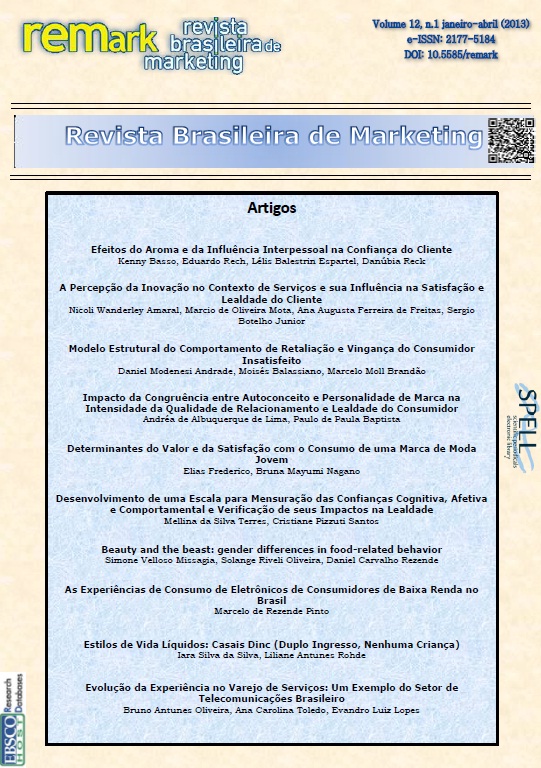Impact of Congruence Between Self-Concept and Personality of Brand in the Intensity of Behavior Quality and Consumer Loyalty
DOI:
https://doi.org/10.5585/remark.v12i1.2508Keywords:
Self-Concept, Brand Personality, Brand Congruence, Relationship Quality, Satisfaction, Affective Commitment, Trust and Loyalty.Abstract
The study investigated the impact of congruence with the brand (expressed by the similarity between the self-concept and the perception of brand personality from the point of view of the consumer), the intensity of relationship quality, and consumer loyalty to the brand. The two main constructs measured to compose the structural model were: self-concept and brand personality, both measured by the scale proposed by Muniz (2005), which consists of five dimensions (reliability, fun, daring, sophistication and sensitivity). Constructs of relationship quality (affective commitment, satisfaction, and trust) and aftermarket (loyalty) were measured using the scales proposed by Baptista (2005). We conducted a survey with 626 e-cases. The objects of the study were consumers’ tennis brands, Adidas and Nike. The results show that the congruence with brand directly impacts the intensity of affective commitment, trust, and customer satisfaction and have an indirect effect on loyalty, this being brokered by the components of relationship quality.
DOI: 10.5585/remark.v12i1.2508
Downloads
Downloads
Published
How to Cite
Issue
Section
- Abstract 586
- PDF (Português (Brasil)) 438








